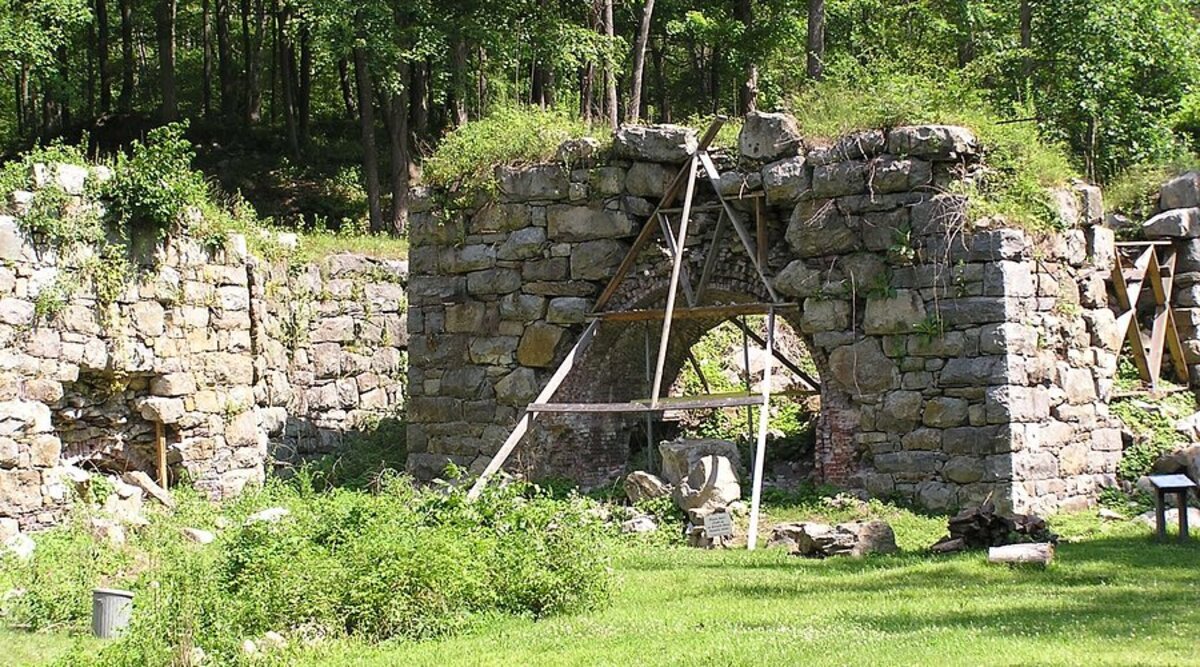Secrets Of New Jersey’s Colonial Iron Works

Ever wondered about the hidden history of New Jersey? One fascinating chapter lies in its Colonial Iron Works. During the 18th century, New Jersey became a hub for iron production. This industry played a crucial role in shaping the state's economy and even supported the American Revolution. From the bustling forges to the skilled blacksmiths, the ironworks were a marvel of early American ingenuity. Today, remnants of these historic sites offer a glimpse into the past. Whether you're a history buff or just curious, exploring New Jersey's ironworks provides a unique window into colonial life. Ready to dive into this rich history? Let's get started!
Secrets of New Jersey's Colonial Iron Works
New Jersey's colonial iron works played a crucial role in America's early industrial history. These sites, scattered across the state, offer a glimpse into the past, showcasing the ingenuity and hard work of early American settlers. Let's explore some of the most fascinating iron works in New Jersey.
Batsto Village
Batsto Village, located in the Wharton State Forest, is a well-preserved example of a colonial iron works community. Established in 1766, Batsto produced iron for the Continental Army during the Revolutionary War. Today, visitors can explore the village's historic buildings and learn about the iron-making process.
- Batsto Mansion: This grand house was the home of Batsto's ironmaster. It offers a peek into the life of a wealthy colonial industrialist.
- Batsto Forge: The heart of the village, where iron was smelted and forged into tools and weapons.
- Batsto Mill: A water-powered mill that ground grain for the village and surrounding areas.
Allaire Village
Allaire Village, once known as the Howell Works, is another significant iron works site. Located in Allaire State Park, this village was a bustling industrial community in the early 19th century. The village has been restored to its former glory, offering a unique window into the past.
- Allaire Mansion: The home of James P. Allaire, the village's founder. It showcases period furnishings and artifacts.
- Blacksmith Shop: Demonstrations of traditional blacksmithing techniques are held here regularly.
- General Store: This store served the needs of the village residents, selling everything from food to clothing.
Long Pond Ironworks
Long Pond Ironworks, situated in the Highlands region, was established in 1766. This site produced iron for various uses, including cannonballs for the Revolutionary War. The remnants of the ironworks and the surrounding village offer a fascinating look at early American industry.
- Furnace Ruins: The remains of the blast furnace where iron ore was smelted.
- Worker's Houses: These simple homes housed the laborers who worked at the ironworks.
- Visitor Center: Exhibits and artifacts tell the story of Long Pond Ironworks and its role in American history.
Tinton Falls Ironworks
Tinton Falls Ironworks, one of New Jersey's earliest ironworks, was established in the late 17th century. Located near the Shrewsbury River, this site played a vital role in the region's economy. Though much of the original ironworks is gone, the area still holds historical significance.
- Tinton Falls: The waterfall that powered the ironworks' waterwheel.
- Historic Marker: A plaque commemorating the site and its importance in colonial history.
- Nearby Trails: Scenic trails offer a chance to explore the natural beauty of the area.
Oxford Furnace
Oxford Furnace, located in Warren County, is one of the oldest remaining iron furnaces in the United States. Built in 1741, it produced iron for over a century. The furnace and surrounding area provide a glimpse into the early iron industry.
- Oxford Furnace: The well-preserved furnace structure, a testament to early American engineering.
- Shippen Manor: The home of the furnace's ironmaster, now a museum with exhibits on local history.
- Heritage Trail: A walking trail that takes visitors through the historic sites of Oxford.
Ringwood Manor
Ringwood Manor, located in the Ramapo Mountains, was the center of a large iron-making operation. The manor and surrounding estate offer a rich history, from colonial times through the 19th century.
- Ringwood Manor: The grand house that served as the residence of the ironmasters.
- Iron Mines: The nearby mines where iron ore was extracted.
- Gardens and Grounds: Beautifully landscaped gardens and walking paths around the manor.
New Jersey's colonial iron works are more than just historical sites; they are windows into the past, showcasing the ingenuity and determination of early American settlers. Each site offers unique stories and insights into the state's rich industrial heritage.
Discovering New Jersey's Colonial Iron Works
New Jersey's colonial iron works offer a fascinating glimpse into early American industry. These sites, like Batsto Village and Allaire Village, showcase the ingenuity and hard work of the past. Visiting these places, you can see how iron production shaped local communities and contributed to the nation's growth. The historic furnaces and forges tell stories of innovation and perseverance. Exploring these sites, you gain a deeper appreciation for the state's rich history. Whether you're a history buff or just curious, New Jersey's iron works provide an educational and engaging experience. So next time you're in the area, take a step back in time and see how these iron works helped build America.

